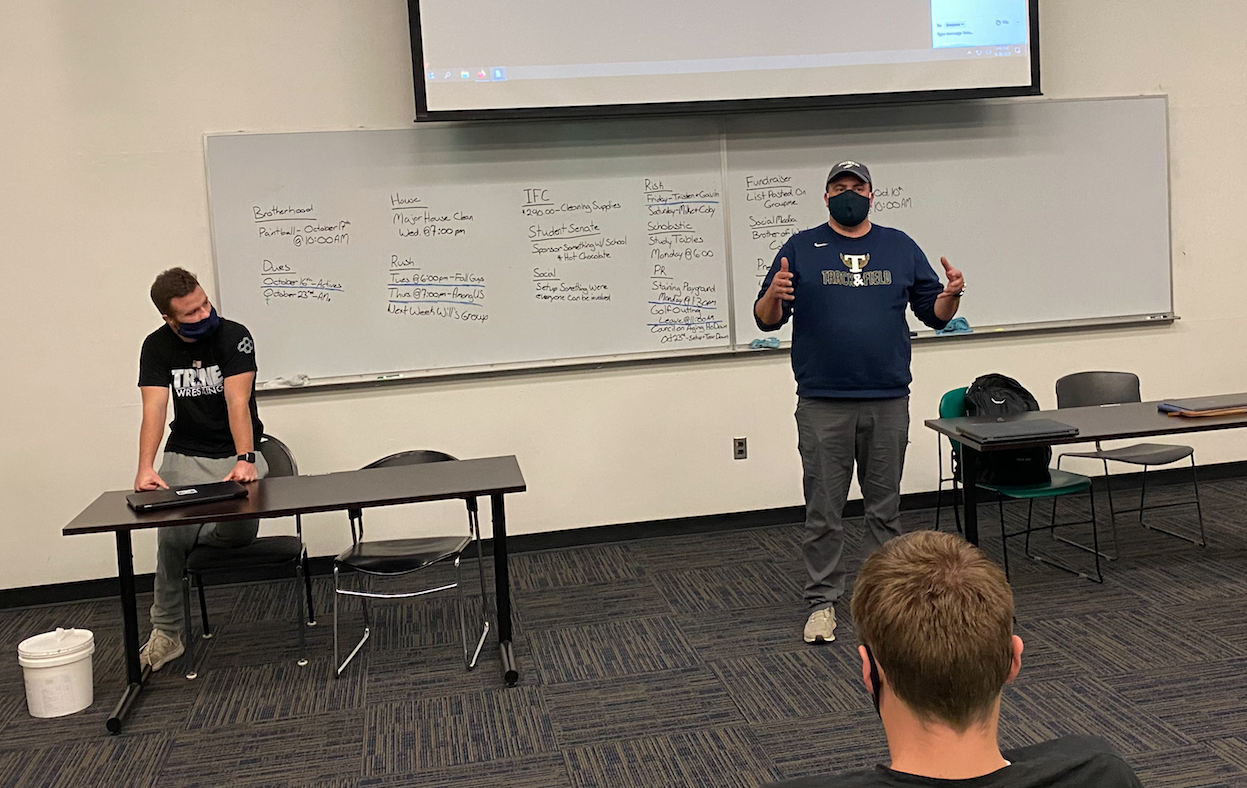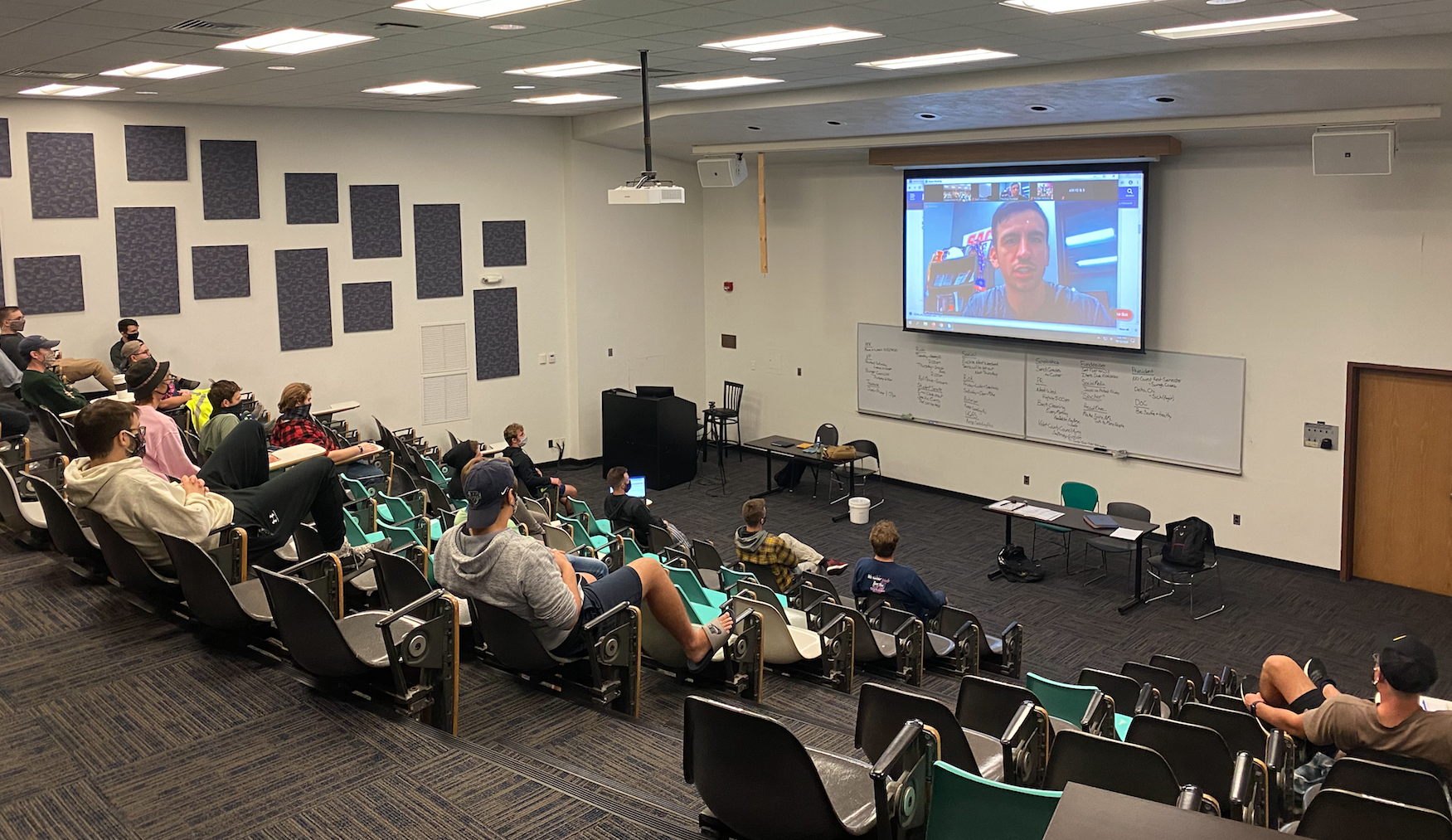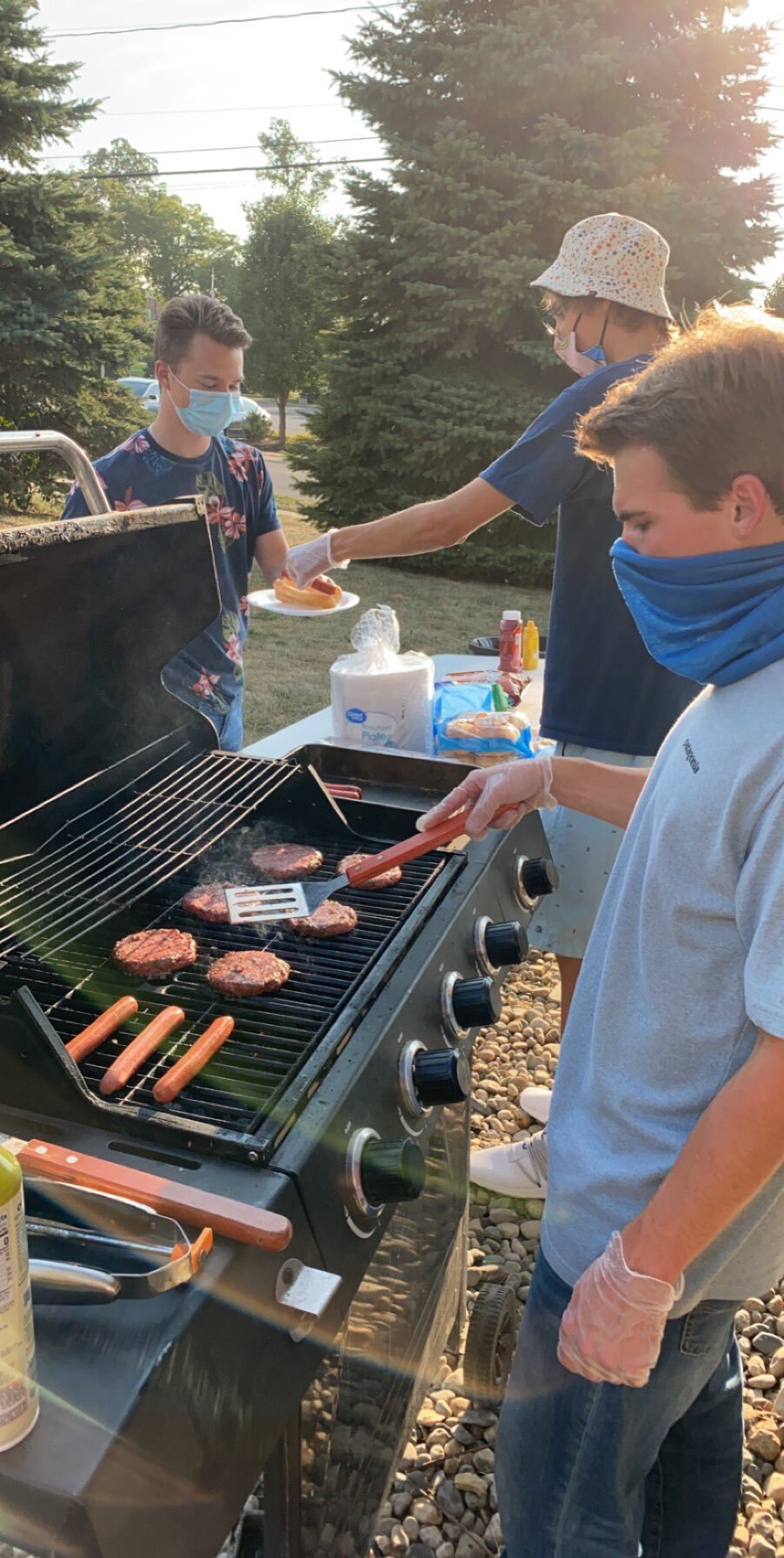Written by: Dan Bureau, Ph.D. (University of New Hampshire, '95), National President
Recently an alum from my chapter reached out to congratulate me on serving as Phi Kappa Theta’s President. It meant a lot because this is a brother with whom I had no previous relationship. He graduated before I even joined the chapter and I had never talked to him before.
Yet, he reached out due to this bond we have as members of this Fraternity, our shared chapter affiliation, and a feeling that our chapter was (sadly, was) something very special in creating conditions that helped members commit to each other, stay connected, and in the name of the Fraternity come together around important life milestones. For example, just a little over a week before he and I spoke for the first time, he had attended the funeral of one of our brothers. For him, Phi Kappa Theta had been a bond that transcended college.
It got me thinking a lot about the role a fraternity can play in addressing the male friendship recession, a term to describe the declining state of meaningful friendships between men. A statistic that shocked me given my involvement in Phi Kappa Theta: the percentage of men with at least six close friends has fallen by half since 1990 with one in five single men having zero close friends.
Zero close friends….
It has led some to embark on a quest to fill their lives with male friends. I think about the consequences of this because if men do not have close male friends, it’s like they don’t have close friends period given the challenges with male/female relationships. Of course, how people display gender or their sexual orientation may influence this differently, but by and large, men are not doing well in having friendships with other men.
By the way, friends help you live longer, maintain better health norms, and provide a source of support when life just frankly gets really hard. However, “Men in general don’t feel particularly skillful in how to form friendships, how to maintain relationships, how to be honest and connected in a way that feels comfortable,” says Cynthia Post, a psychologist, in the previously referenced Washington Post article.
Not everyone chooses to join a fraternity or are involved in environments in which male friendships might come easily, which made me think about the heightened responsibility our organizations have to create the relationships men need to realize our goals.
It struck me that while the fraternity is a conduit to friendships - across genders given the socialization patterns of fraternity men engaged in campus life and the way many collegiate members become actively involved in their fraternity and other civic organizations - it does not guarantee these relationships become meaningful for members at the collegiate or alumni level.
Brothers, building meaningful and value-added relationships is our charge!
If a fraternity should do anything well, it should be to teach men how to have meaningful, satisfying, and impactful relationships with each other and others. To be honest, there is little else really distinctive about our experience than the immediate ability to create intergenerational relationships that can have enormous emotional and other benefits in college and beyond. This was my experience:
One of my best men in my wedding was my best friend from my chapter.
When I come to convention, I have a connection with people whom I rarely interact with otherwise and it is like we see each other all the time.
As I serve the Fraternity, I try to build relationships that sustain my happiness and have done so in every aspect of my involvement.
I am a better friend to other men, even outside of Phi Kappa Theta, because of the skills I learned as a member.
(Credit, Hirsch, Vox, August 2022)
Fraternity can be what we hold up as the primary agent of change in this male friendship recession, but we have to be intentional about this and it will not be easy given all we have working against us. The Vox article (Aubrey Hirsch, 2022) referenced above references a disorder called normative male alexithymia:
I am not going to get into a conversation about masculinity and male gender norms because while they stifle us, there is a lot of identity attached to this and much of how we show up as men has been learned over time: we cannot shame people into change. I feel like on the whole the best is for you to, “do you” as long as it does not hurt people - be the representation of a man that makes sense to you.
That said, our chapters, our organization, and our members can create conditions in which the relationships we seek with other men in college and in life are not just bought as a result of membership, but are what we spend our time improving as a result of our social interactions, service to the community, involvement in campus life, educational experiences and in many cases a shared living environment.
So, we have work to do but it must be done. If we are intentional and thoughtful about ensuring an environment in which men can build the skills they need to be the right friends to each other while in college and to their fellow brothers and other humans in general after college, then we will be contributing to the improvement of our members in ways that really can be transformative and impactful.




